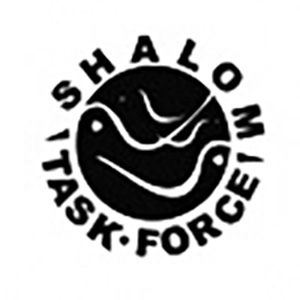
We just completed another October Domestic Violence Awareness Month. As an agency dedicated to combating domestic violence in the Jewish community, we find it challenging to create the necessary energy needed around awareness of this critical issue. We have successfully run social media campaigns and hosted myriad educational programs. But October is difficult timing—it conflicts with the Jewish holidays, children are just returning to school, and we are all trying to find our “normal routine.” And domestic violence still remains a difficult topic to address. Although our community shifted to accept that abuse does exist, we still often think about it as a problem of the other. We will say, “Of course, there is domestic violence in the Jewish community, but it’s the ‘other’ Jewish community (fill in your blank).”
As a social worker who has worked with survivors of domestic violence for almost 20 years, I have assisted survivors from EVERY Jewish community. We know that one in four women and one in seven men will experience abuse in their lifetime. We as a community must continue to acknowledge and combat this pervasive trauma. This past summer, I facilitated an online support group for survivors of domestic violence from within the Jewish community. During one particular session, I asked the group what they wished their community and family knew about domestic violence. There were a few common themes that I think are important to examine.
Survivors wanted people to know that domestic violence is much broader than physical abuse—and in the communities we serve, it is more often nonphysical coercive control. Abuse is not only about the black-and-blue marks. Domestic violence is defined as a pattern of behaviors that one partner uses to obtain power and control over the other person—and instills a sense of fear. The abuse can take many forms including sexual, financial, technological, emotional, verbal and spiritual.
Survivors also wanted their friends and family to stop asking, “Why don’t you just leave?” They want others to understand that the decision to leave a relationship is very complex and dangerous. They do not want to be judged for staying, but respected and supported during their journey.
Most importantly survivors wanted us to know that the community has power, and there is power in the community.
The Community Has Power
One of the most significant barriers to accessing help is the deep shame associated with being a victim of domestic violence. The pain survivors experience at “failing at marriage” in our Jewish communities can be immobilizing. Survivors cannot imagine what life after a marriage could look like. There is also great fear that their children will be negatively impacted by a separation and divorce and they will be left without a sense of belonging and community.
Community can have tremendous power over the individuals and their choices.
In more insular cultures, there is great importance placed on tradition and an individual’s role as part of the community. This dynamic is not always related to ritual practice but is interconnected and usually informs individuals’ lives. Insular communities are that—they are insular. They are close-knit, with strong ascribed roles and often have rigid gender roles. We know that being part of an insular community certainly does not cause abuse, but it can allow for it, camouflage it, and reinforce it.
This dynamic remains true in more progressive and modern communities as well. Survivors may not come forward because of their communal status, emphasis on perceived family success, socioeconomic considerations, and sense of belonging. Others feel trapped because they do not think they will be believed, that their community will support the abuser, and they will be forced to uproot their lives.
We need to honor how people from all segments of Jewish life understand their trauma and the role of the community in that experience. While some may experience communal life as hurtful, there are others that find great support in the community and a source of hope and comfort.
The Power of Community
I started this blog earlier this month. Then this past Shabbat, we lost a great soul, a leader in thought and morality – Rabbi Lord Jonathan Sacks, zt”l. There are so many ways that his thinking has informed my life and work, particularly one of his many quotes: “God does not want us to understand the suffering of the innocent but to fight for a world in which the innocent no longer suffer.” Family violence is a deeply intimate experience of trauma—our role is to fight for and support those who are suffering.
Community has great power and potential to make positive change. When we as a community acknowledge these issues, we are part of the solution. We allow for choice by maintaining a nonjudgmental stance. When we are inclusive of all families, we create space for survivors to envision a safer alternative. By supporting community-based programs, survivors are given the opportunity to come forward and get the help they need. We often think as individuals we cannot really make a difference, but if we can each spread awareness and help bring critical discussions about healthy relationships to the fore, then we can become the ambassadors needed to make this change. In this way, we can fight for the innocent and use the power of community for good.
Shoshannah D. Frydman, executive director of Shalom Task Force, holds degrees from the University of Maryland School of Social Work and the Graduate Center of the City University of New York/Hunter College School of Social Work. With over 15 years of experience working with victims of domestic violence and sexual assault in the Jewish community, Dr. Frydman has written and lectured frequently on the subject of intimate partner abuse, and has been honored for her work by the Jewish Communal Service Association and the New York Board of Rabbis. If you or a loved one is in an abusive or unhealthy relationship, please call, text, or WhatsApp the Shalom Task Force’s confidential hotline at (888) 883-2323.












